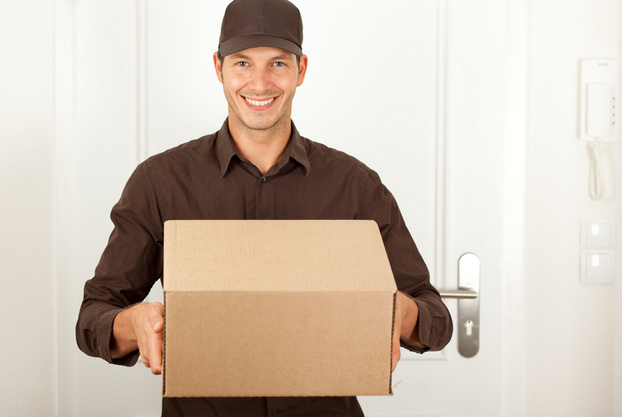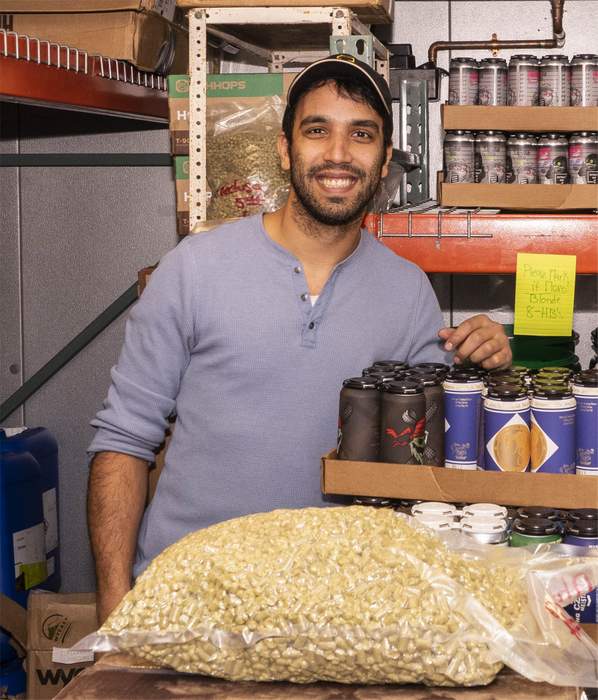We reported on a direct-to-consumer craft beer delivery service that launched in New York last week called TapRm. The idea fundamentally makes sense to us since, well, pretty much all things are bought online and delivered in-home these days. Like, wine for example. So, why should beer be any different?
Well, CBB reader Rick Boyd pointed out plenty of reasons why craft beer is different. Boyd is currently the owner of Brewforia Beer Market in Lake Tahoe. His journey to this iteration of Brewforia was long and winding, but the important part for our purposes here is his experience trying to ship beer as part of Brewforia’s business from 2008 to about 2013 when it was based in Idaho (it was also known as Brewtopia for part of that time — again, long story).
At the start, Brewforia was the largest online shipper of beer in the country, reaching 31 states. We asked Boyd to relay some of his experiences which has resulted in skepticism of all beer delivery service models, and he obliged.
Obviously, 2008 (even 2013) was a way different time in terms of technology, consumer appetite for home delivery services and the beer distributor’s view of craft beer. At that time, distributors were reluctant to bring in new brands for fear it would water down sales of established brands and damage relationships with those brands in house.
“Our biggest seller when we were shipping was Alaskan Amber,” Boyd recalled. “At the time Alaskan only had distribution in six states, but people from all over the country would vacation on Alaskan cruises where they’d have it on the boat and then want it when they got home. In the cruise off season, we’d sell a pallet a week to customers on the East Coast. As they opened up distribution our sales withered for that product.”
Boyd and crew worked aggressively to bring new brands into Idaho, specifically from tourist-centric areas, but his biggest battles were regulatory. Federal interstate commerce laws that permit the shipping of alcohol to consumers directly only apply to wine, according to the Supreme Court. So figuring out which states permitted shipments, which required excise taxes be paid like a distributor, which required a license, etc., was unwieldy.
With state distributors holding that unique power of theirs, there is a lot of political pressure tied to anything that might cut into it. We’ve seen that play out a bunch in the last decade with craft brewers fighting self-distribution, taproom to-go sales and so on. So imagine how distributors felt in 2008 about another third party entity launching a way to sell craft beer straight to a consumer.
“We were attempting to expand the definition to include beer and spirits by having our state legislature amend its definition knowing it would be shot down in Idaho, and then we could challenge in federal court,” Boyd said. “Each state has different sets of laws, standards and requirements to distributor or sell it. Without a federal ruling there’s no pressure on states to permit it.”
Well, this plan didn’t fly after the Idaho Wholesalers and a state Senator got involved (a whole nother story).
Anyway, once you get past that minefield, there’s the actual matter of shipping. At the outset Brewforia had a contract with UPS and FedEx to ship, which only caused more woes.
“Beer was in the name of our business and our contract with them was in the business name. We paid the additional fees to have drivers collect signatures and check IDs. Suddenly, in the middle of Christmas season both companies suspended our contracts claiming we were operating illegally by shipping beer. It took three months to get our contract with UPS restored but never got a new contract with FedEx.”
This same thing happened to BeerJobber. They invested a ton in their website and developing relationships with breweries and things were going good until suddenly UPS cut them off.
“This story has happened to lots of companies out there and until it’s challenged in court and the Supreme Court expands its definition to include beer, it will remain incredibly risky,” Boyd said.
Back to TapRm …
We relayed a lot of Boyd’s concerns and questions to Jason Sherman, founder of TapRm, and his answers renewed my hope for their plans. For one, TapRm is based in New York and shipping to New Yorkers, but it also has a traditional distribution business of its own. It’s been selling B2B since the middle of last year, and the company has more than 300 accounts with an emphasis on craft beer focused bars and bottle shops as well as high-end restaurants, bars, clubs and markets. Those accounts are just as integral to its approach as the direct to consumer channel.
The company’s goal isn’t just to ship beer from craft breweries to craft beer drinkers. They want to be the first online marketplace sourcing from breweries directly and providing the triad of online sales, B2B distribution and brick-and-mortar retail — all with the goal of “highlighting our amazing brewery partners.”
“Our exclusive relationships and deep partnerships with the brewers in the market give us a huge advantage in enhancing the 1:1 engagement between the consumers of the beer and the producers of the beer,” Sherman said. “We maintain our margins by being the exclusive distributor, the retailer of the products and the online marketplace — TapRm’s Omni-Channel Approach. That allows us to have the most competitive pricing and be the low-cost leader for everything on our site across the state.”
Here are his answers to other concerns astutely raised by Boyd.
On shipping concerns
“We do not ship using USPS, UPS or FedEx since it is either against the law or against their policy to ship beer through them. We either do delivery in-house if it is NYC or use a multitude of regional and local carriers who have the backend compliance necessary for beer across New York. Also, shipping beer direct-to-consumer is legal for retailers in New York to consumers in New York. For instance, offices have been buying kegs and cases of beer delivered from local beer retailers for decades.
“We keep most of our beer in cold storage at our fulfillment center and send all beer next-day delivery to minimize the time that it spends in any off-temperature conditions. We have custom air-pillow and bubble wrap machines that allows us to tightly pack all beer safely. We also are shipping 95 percent aluminum cans which fit neatly in each box to avoid glass breakage.
“Lastly, all beer must be signed for and ID’ed by someone 21+ upon receipt. We take that exceptionally seriously.”
On relationships with distributors
“We have fantastic relationships with all the distributors in NYC. We are a very large purchasing retail account for them and have referred different breweries between us based on our different specialties. We are helping many brands, some of whom have been in NY’s market for a long time, build a presence and find their loyal fans online. Also the TapRm distribution contracts do not have termination penalties, so brewers are free to move from us at any time.”
Why we are still intrigued
“We are building all of our channels together as we believe that it’s the best way for breweries to reach all their consumers and build their brands in new markets without as much of the risk or cost the current distribution system creates.”







Leave a Reply
You must be logged in to post a comment.